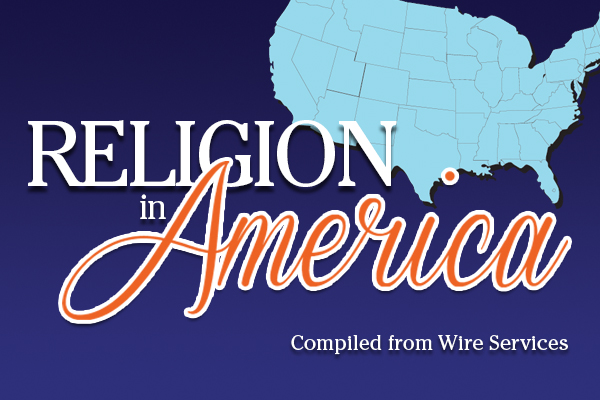In an era when religious groups in America are increasingly speaking out on political issues, politicians also must regularly confront questions relating to religion. Elected officials often struggle to balance their personal faith with their public obligations.
And when it comes to reconciling the personal and the political, former New York Gov. Mario Cuomo, a Roman Catholic liberal, and Indiana Republican Rep. Mark Souder, a conservative Protestant, couldn’t be more different.
At a panel discussion titled “Religion on the Stump: Religion and Politics in America,” hosted by the Pew Forum on Religion and Public Life on Oct. 2, the two held forth on the dilemma facing politicians of all faiths.
In a September 2000 Pew Forum survey, 70 percent of Americans said it was important for political candidates to be strongly religious, but 50 percent were uncomfortable when politicians talked about how religious they are. Another Pew survey in March 2002 found that while nearly 50 percent of Americans favored religious groups voicing political and social views, 70 percent did not believe churches and other religious organizations should endorse political candidates.
So where does that leave politicians and their religion?
In a pluralistic democracy, Cuomo said, public law must be governed by rational judgment, not one person’s idea of morality. It is a distinction that guided him throughout his long career in New York State politics, including 12 years as governor between 1986 and 1994, and in his current job as a lawyer in New York City.
Citing the Declaration of Independence, which mentions God once (in the phrase, “the laws of Nature and Nature’s God”), Cuomo said public law must be “derived from nature and human reason.” Following nature’s law, Catholics in public office “have to try to create conditions under which all citizens can live with a reasonable degree of freedom to practice their own competing religious beliefs,” Cuomo said.
Often that means defending others’ rights to do things that go against the basic tenets of Catholicism, Cuomo said, including, “the right to divorce, to use birth control, to choose abortion, to withdraw stem cells from embryos, or even to fight the belief in God.”
That’s not to say religion never holds the answer in a public debate.
But promoting religious beliefs in politics is risky, he said, and can often prove more divisive than anything else.
During his years in office, Cuomo often asked himself: “When should I argue to make my religious value your morality? My rule of conduct, your limitation?”
Souder, a congressman since 1994, said political decisions cannot be divorced from morality. As a public official, “every day, every hour, you make moral decisions,” Souder said.
“[For instance] new laws to restrict cheaters like Enron. It’s a moral decision. Conservative Christians, as individuals, do not separate ourselves into a private and public life,” he said.
“It’s unfair to ask us to check [our religious] beliefs at the public door.”
But too often today, Souder said, religion and government are at odds when they should be working together. As a champion of President Bush’s faith-based initiative, Souder has advocated giving public money to religious organizations working to address social ills such as teen pregnancy, drug addition and gang violence.
“Faith institutions are the key to developing a moral foundation [in society],” he said. “The government may foster it, encourage it, nurture it, or they may discriminate against it, harass it or undermine it.”
An evangelical Christian in Congress, raised in small-town Indiana as an Anabaptist, Souder said he often feels discriminated against because of his strong beliefs. In particular, he said he resents that voicing his views on certain sensitive issues such as “homosexual marriage, pornography, abortion, gambling [and] evolution across species” remains taboo.
Souder rejected Cuomo’s notion of “nature’s law.”
“I believe the Holy Trinity is nature’s law,” he said. Aside from that, he said, “I don’t believe there is a common denominator that is workable in the political system.”
When a person in the audience asked Cuomo whether idea of nature’s law is too simplistic to be of any practical use, Cuomo answered: “Too general? It’s the whole game. Unless the United States understands that, we’re finished.”





Share with others: